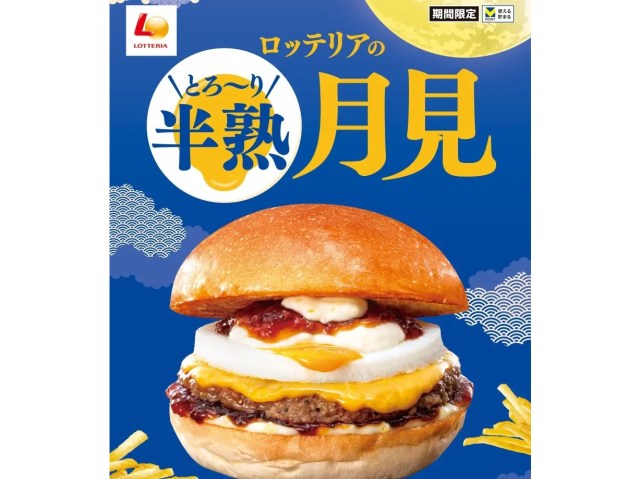
Linguistics you can taste.
In addition to being a way to provide nutrition and spread joy, food is sometimes a way to transmit language too. You don’t have to be fluent in French or Italian, after all, to know what “flambé” or “al dente” mean when you see them on a menu or in a cookbook.
If you’ve been reading SoraNews24, or simply have spent much time in Japan in the fall, there’s a pretty good chance the word “tsukimi” has creeped into your vernacular consciousness. Coming from the words tsuki (“moon”) and miru (“look at”), tsukimi originally means “moon-viewing.” Since a raw egg dropped into a bowl of noodles looks a full moon before the heat of the broth cooks it, noodles prepared this way also came to be known as tsukimi-style, and in recent years hamburger restaurants in Japan have started using tsukimi to describe special burgers with fried eggs that they serve for a limited time in autumn, coinciding with the traditional moon-viewing (as in actually looking up at the moon) party season in Japan.
But there’s still more Japanese vocabulary to learn, and more mouthwatering tsukimi burgers to eat, thanks to Japanese fast food chain Lotteria’s Torori Hanjuku Tsukimi Fair and the Wafu Hanjuku Tsukimi Zeppin Cheese Burger.
First, let’s unpack the linguistics of the event name. Torori is an adjective used to describe something melty or gooey, but in an enticingly appetizing way. The cheese on a pizza that’s right out of the oven, or the chocolate/marshmallow mix inside s’mores straight from the campfire, are torori. Han means “half,” and juku originally means “ripe,” as in a ripe piece of fruit. Hanjuku therefore literally means “half-ripe,” but the meaning of juku can also extend to something that’s mature or complete, and when you’re talking about eggs in Japanese, calling an egg hanjuku or “half-done” means that it’s a soft-boiled egg (because it wasn’t cooked all the way to hard-boiled status).
So the Torori Hanjuku Tsukimi Fair consists of four burgers with especially melty soft-boiled eggs, starting with the Wafu Hanjuku Tsukimi Zeppin Cheesenburger (590 yen [US$4]).
OK, so now we’ve got two more vocabulary words, starting with wafu. By itself, wa means “harmony,” but it can also refer to Japan itself (since way back in the day, Japan was called “Yamato,” which was written with the kanji characters for “great” and “harmony”). Fu is another multi-purpose word, as it originally means “wind,” but can also mean “style” (as we’ve talked about before), making wafu “Japanese-style.” Finally, zeppin literally means “absolute item,” but in the sense of a work of art that you simply must experience, i.e. a “masterpiece,” and also happens to be part of Lotteria’s Zeppin Cheeseburger premium cheeseburger line.
So all together, the Wafu Hanjuku Tsukimi Zeppin Cheesenburger is a “Japanese-style soft-boiled egg premium cheeseburger.” Why Japanese-style? Because of the teriyaki sauce, made with coarse-ground ginger and garlic for extra flair, and the addition of yuzu (a Japanese citrus fruit somewhere between an orange and a lemon) in the mayo. The cheese here is a mix of red cheddar, gouda, mascarpone, and parmesan, so clearly a lot of thought and effort has gone into making this a zeppin of cheeseburgers. And yes, Lotteria promises that the soft-boiled egg is extra torori.
Also part of the Torori Hanjuku Tsukimi Fair is the Wafu Hanjuku Tsukimi Ebi Burger (590 yen), so yeah, here’s a bonus Japanese vocabulary word, ebi, which means “shrimp.” This sandwich keeps the teriyaki sauce and yuzu mayo but swaps in a shrimp cutlet, ditches the cheese, and adds shredded cabbage, Japan’s favorite veggie accompaniment for cutlets.
Getting back to beef, the Wafu Hanjuku Tsukimi Teriyaki Burger (520 yen) sounds like it would just be the Wafu Hanjuku Tsukimi Zeppin Cheesenburger without the cheese, but it’s actually a little different, as it has lettuce, regular non-yuzu mayo, and mustard.
And finally, the Wafu Hanjuku Tsukimi Umakara Teriyaki Burger (590 yen) starts with the Wafu Hanjuku Tsukimi Teriyaki Burger as its base, then adds jalapenos and a sauce made from red chili peppers, garlic, and vinegar to make it all so very umakara (“deliciously spicy”).
The whole lineup goes on sale August 30. Oh, and if you’re wondering what’s up with those upwardly angled French fries in the poster…
…autumn is also when the susuki (pampas grass) turn a beautiful golden color in Japan. Moon-viewing artwork also contains depictions of susuki too, so Lotteria has used fries in their place, making their new burgers an indirect Japanese linguistics lesson and an art history one too.
Source, images: PR Times
● Want to hear about SoraNews24’s latest articles as soon as they’re published? Follow us on Facebook and Twitter!
Follow Casey on Twitter, where maybe, just maybe, he has a thing for Japanese linguistics.

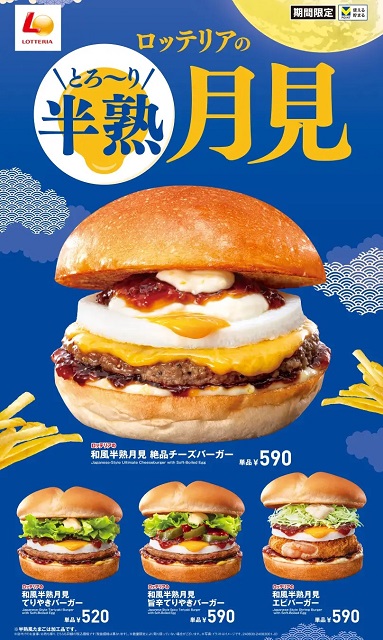
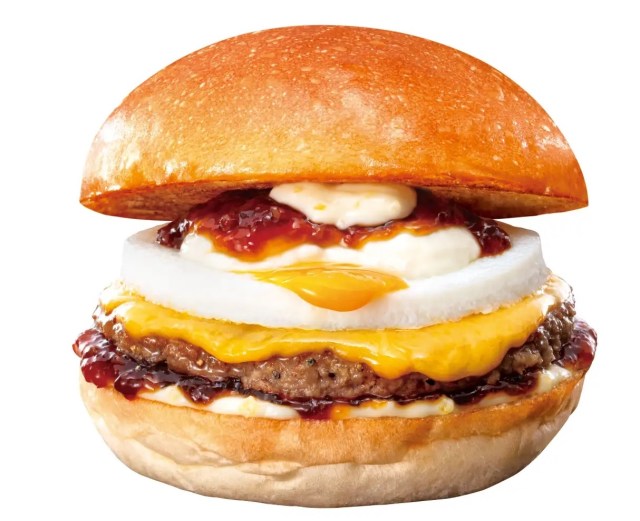
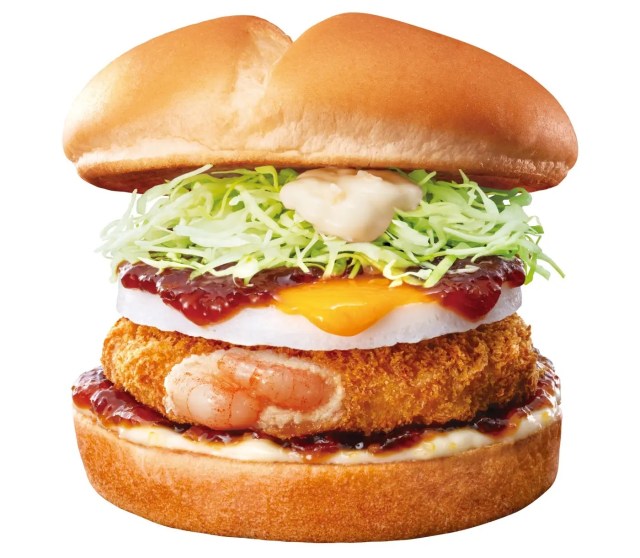
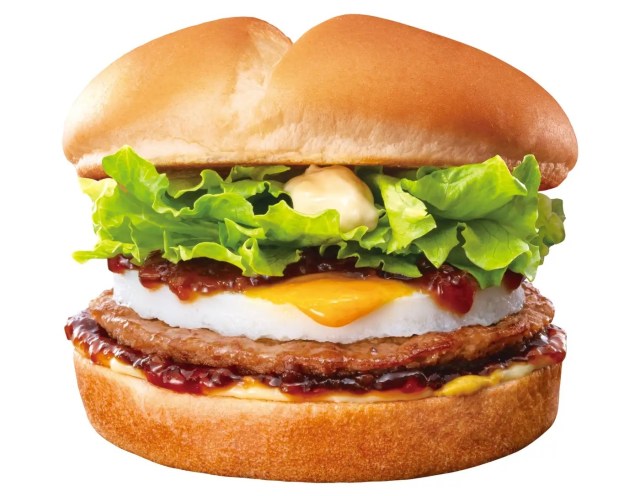
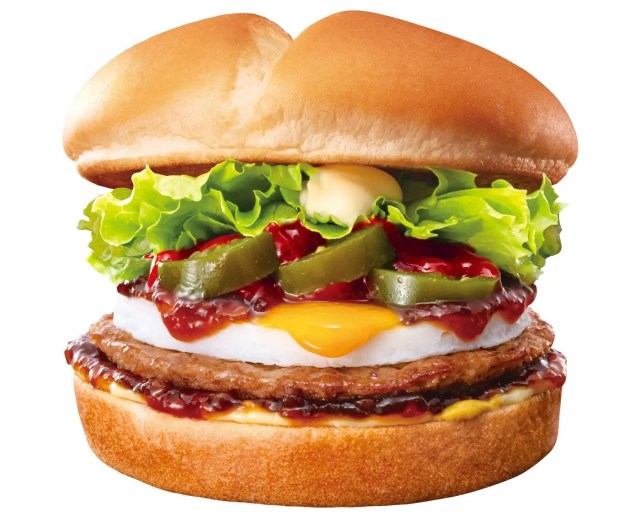
 What are Lotteria Japan’s tsukimi moon-viewing burgers like this year?
What are Lotteria Japan’s tsukimi moon-viewing burgers like this year? Lotteria celebrates moon-viewing season with four deliciously eggy, limited-edition sandwiches
Lotteria celebrates moon-viewing season with four deliciously eggy, limited-edition sandwiches Lotteria’s Tsukimi Rib Sandwich joins the fight for Japanese tsukimi supremacy【Taste test】
Lotteria’s Tsukimi Rib Sandwich joins the fight for Japanese tsukimi supremacy【Taste test】 Tsukimi Moon-Viewing Burger Showdown: Which Japanese fast food chain got it right this year?
Tsukimi Moon-Viewing Burger Showdown: Which Japanese fast food chain got it right this year? Who makes Japan’s best moon-viewing burger? Let’s eat as many as we can and find out【Taste test】
Who makes Japan’s best moon-viewing burger? Let’s eat as many as we can and find out【Taste test】 Viral Japanese cheesecake from Osaka has a lesser known rival called Aunt Wanda
Viral Japanese cheesecake from Osaka has a lesser known rival called Aunt Wanda Lawson adds doughnuts to its convenience store sweets range, but are they good enough to go viral?
Lawson adds doughnuts to its convenience store sweets range, but are they good enough to go viral?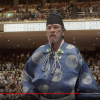 Tommy Lee Jones cries, says sayonara to the Heisei era in epic new Boss coffee commercial 【Video】
Tommy Lee Jones cries, says sayonara to the Heisei era in epic new Boss coffee commercial 【Video】 Which convenience store onigiri rice balls are the most popular? Survey reveals surprising results
Which convenience store onigiri rice balls are the most popular? Survey reveals surprising results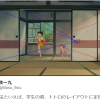 Manga artist raises question online about false perspective in Ghibli film My Neighbor Totoro
Manga artist raises question online about false perspective in Ghibli film My Neighbor Totoro Japanese high school girl Saya returns to blow everyone away with her new look for 2016
Japanese high school girl Saya returns to blow everyone away with her new look for 2016 Practical Zelda Tears of the Kingdom merch is here to be Hyrule-helpful in your daily life【Pics】
Practical Zelda Tears of the Kingdom merch is here to be Hyrule-helpful in your daily life【Pics】 Studio Ghibli releases Kodama forest spirits from Princess Mononoke to light up your home
Studio Ghibli releases Kodama forest spirits from Princess Mononoke to light up your home 7-Eleven Japan’s sakura sweets season is underway right now!
7-Eleven Japan’s sakura sweets season is underway right now! Rising J-POP star is talented, good-looking and certainly not your typical Japanese musician!
Rising J-POP star is talented, good-looking and certainly not your typical Japanese musician! Starbucks Japan releases first-ever Hinamatsuri Girls’ Day Frappuccino
Starbucks Japan releases first-ever Hinamatsuri Girls’ Day Frappuccino Japanese restaurant chain serves Dragon Ball donuts and Senzu Beans this spring
Japanese restaurant chain serves Dragon Ball donuts and Senzu Beans this spring Highest Starbucks in Japan set to open this spring in the Tokyo sky
Highest Starbucks in Japan set to open this spring in the Tokyo sky Japan Extreme Budget Travel! A trip from Tokyo to Izumo for just 30,000 yen [Part 1]
Japan Extreme Budget Travel! A trip from Tokyo to Izumo for just 30,000 yen [Part 1] Japan has only one airport named after a samurai, so let’s check out Kochi Ryoma【Photos】
Japan has only one airport named after a samurai, so let’s check out Kochi Ryoma【Photos】 Japan Extreme Budget Travel! A trip from Tokyo to Izumo for just 30,000 yen [Part 2]
Japan Extreme Budget Travel! A trip from Tokyo to Izumo for just 30,000 yen [Part 2] Japan’s craziest burger chain takes menchi katsu to new extreme levels
Japan’s craziest burger chain takes menchi katsu to new extreme levels Japanese drugstore sells onigiri at pre-stupid era prices, but how do they compare to 7-Eleven?
Japanese drugstore sells onigiri at pre-stupid era prices, but how do they compare to 7-Eleven? Yakuzen ramen restaurant in Tokyo is very different to a yakuza ramen restaurant
Yakuzen ramen restaurant in Tokyo is very different to a yakuza ramen restaurant Tokyo Skytree turns pink for the cherry blossom season
Tokyo Skytree turns pink for the cherry blossom season Japan’s newest Shinkansen has no seats…or passengers [Video]
Japan’s newest Shinkansen has no seats…or passengers [Video] Starbucks Japan releases new sakura goods and drinkware for cherry blossom season 2026
Starbucks Japan releases new sakura goods and drinkware for cherry blossom season 2026 Foreigners accounting for over 80 percent of off-course skiers needing rescue in Japan’s Hokkaido
Foreigners accounting for over 80 percent of off-course skiers needing rescue in Japan’s Hokkaido Super-salty pizza sends six kids to the hospital in Japan, linguistics blamed
Super-salty pizza sends six kids to the hospital in Japan, linguistics blamed Starbucks Japan unveils new sakura Frappuccino for cherry blossom season 2026
Starbucks Japan unveils new sakura Frappuccino for cherry blossom season 2026 Foreign tourists in Japan will get free Shinkansen tickets to promote regional tourism
Foreign tourists in Japan will get free Shinkansen tickets to promote regional tourism The 10 most annoying things foreign tourists do on Japanese trains, according to locals
The 10 most annoying things foreign tourists do on Japanese trains, according to locals Take a trip to Japan’s Dododo Land, the most irritating place on Earth
Take a trip to Japan’s Dododo Land, the most irritating place on Earth Naruto and Converse team up for new line of shinobi sneakers[Photos]
Naruto and Converse team up for new line of shinobi sneakers[Photos] Is China’s don’t-go-to-Japan warning affecting the lines at a popular Tokyo gyukatsu restaurant?
Is China’s don’t-go-to-Japan warning affecting the lines at a popular Tokyo gyukatsu restaurant? Survey asks foreign tourists what bothered them in Japan, more than half gave same answer
Survey asks foreign tourists what bothered them in Japan, more than half gave same answer Japan’s human washing machines will go on sale to general public, demos to be held in Tokyo
Japan’s human washing machines will go on sale to general public, demos to be held in Tokyo Starbucks Japan releases new drinkware and goods for Valentine’s Day
Starbucks Japan releases new drinkware and goods for Valentine’s Day We deeply regret going into this tunnel on our walk in the mountains of Japan
We deeply regret going into this tunnel on our walk in the mountains of Japan Major Japanese hotel chain says reservations via overseas booking sites may not be valid
Major Japanese hotel chain says reservations via overseas booking sites may not be valid Put sesame oil in your coffee? Japanese maker says it’s the best way to start your day【Taste test】
Put sesame oil in your coffee? Japanese maker says it’s the best way to start your day【Taste test】 No more using real katana for tourism activities, Japan’s National Police Agency says
No more using real katana for tourism activities, Japan’s National Police Agency says The two best Tsukimi Moon-Viewing burgers in Japan for 2023
The two best Tsukimi Moon-Viewing burgers in Japan for 2023 McDonald’s and KFC Japan release new Tsukimi “moon-viewing” burgers for 2020
McDonald’s and KFC Japan release new Tsukimi “moon-viewing” burgers for 2020 KFC Japan unveils new Tsukimi Moon Viewing Burgers for 2024
KFC Japan unveils new Tsukimi Moon Viewing Burgers for 2024 Eating ALL the McDonald’s and KFC Tsukimi Moon Viewing Burgers in Japan!
Eating ALL the McDonald’s and KFC Tsukimi Moon Viewing Burgers in Japan! KFC Japan’s new Tsukimi Moon-Viewing burger range includes two new surprises
KFC Japan’s new Tsukimi Moon-Viewing burger range includes two new surprises KFC Japan invites you to admire beauty of moon, then eat it with tsukimi fried chicken sandwiches
KFC Japan invites you to admire beauty of moon, then eat it with tsukimi fried chicken sandwiches KFC Japan unveils new Tsukimi Moon Viewing Burgers for 2025
KFC Japan unveils new Tsukimi Moon Viewing Burgers for 2025 Autumn is on the way, and that means it’s time for fried chicken fried egg sandwiches in Japan
Autumn is on the way, and that means it’s time for fried chicken fried egg sandwiches in Japan Lotteria craziness continues with the new okonomiyaki burger
Lotteria craziness continues with the new okonomiyaki burger Tsukimi Burger season-viewing starting soon with moon-viewing sandwiches from Wendy’s Japan/First Kitchen
Tsukimi Burger season-viewing starting soon with moon-viewing sandwiches from Wendy’s Japan/First Kitchen Is Lotteria’s new meat sauce burger a challenge to the reign of Mos Burger’s Japanese classic?
Is Lotteria’s new meat sauce burger a challenge to the reign of Mos Burger’s Japanese classic? Burger King releases Pine Tsukimi burgers for moon-viewing season in Japan
Burger King releases Pine Tsukimi burgers for moon-viewing season in Japan Is KFC Japan’s new Triple Tsukimi Moon Viewing Burger really as big as it looks?
Is KFC Japan’s new Triple Tsukimi Moon Viewing Burger really as big as it looks? McDonald’s Japan releases new Tsukimi “moon-viewing” burgers for 2021
McDonald’s Japan releases new Tsukimi “moon-viewing” burgers for 2021 Tokyo’s new burger chain isn’t new, is disappointing, tasty, and hopeful all at once【Taste test】
Tokyo’s new burger chain isn’t new, is disappointing, tasty, and hopeful all at once【Taste test】